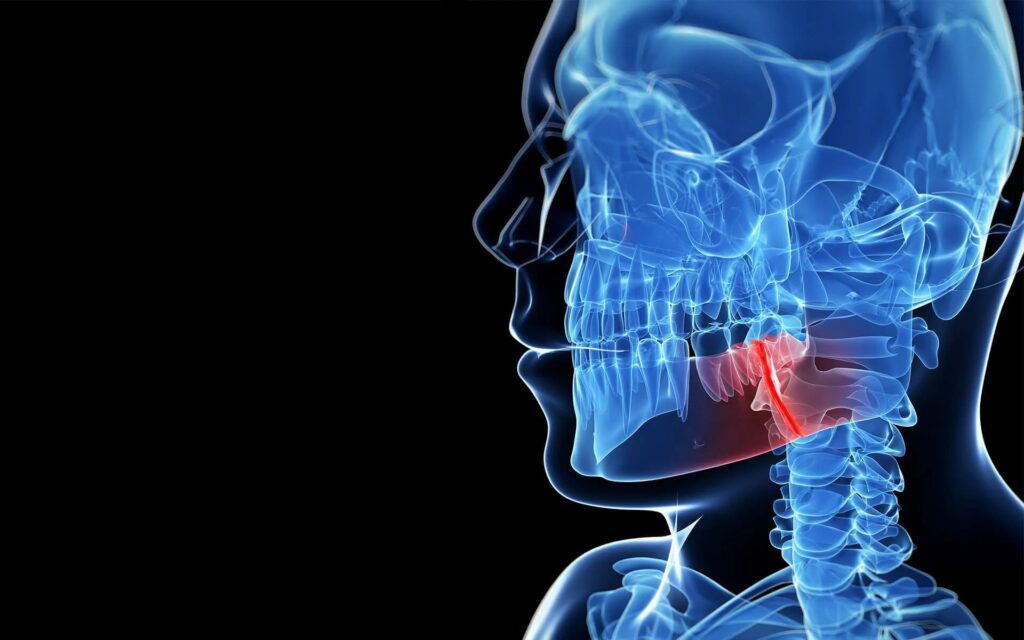Key Takeaways
- Jaw popping can occur for a number of reasons, such as trauma, arthritis, or temporomandibular joint diseases.
- Early symptom recognition can aid in effective disease management.
- Options for treatment include both medical procedures and at-home cures.
- For an accurate diagnosis and course of therapy, consultation with medical specialists is essential.
Understanding Jaw Popping
Jaw popping is a common issue that many people experience at some point in their lives. It’s a sound or sensation that occurs when the jaw opens and closes, often accompanied by discomfort. While it can be alarming, understanding the underlying causes can ease concerns and guide you toward how to fix jaw popping via appropriate treatment options. Many factors contribute to this condition, and recognizing them can aid in effective management. Knowing why jaw popping occurs can also help in preventing the problem from escalating into a more severe condition.
Common Causes of Jaw Popping
The causes of jaw popping can range from benign to severe. One common cause is temporomandibular joint disorder (TMJD), which affects the joint connecting the jawbone to the skull. This joint allows for the up-and-down and side-to-side movements of the jaw. TMJD can result from several factors, including jaw misalignment, trauma, arthritis, and excessive muscle tension. Other causes include arthritis, which can inflame and deteriorate the joint over time. Degenerative arthritis conditions, such as osteoarthritis and rheumatoid arthritis, are mainly known to affect the temporomandibular joint. Jaw trauma from accidents or injuries can also disrupt the normal functioning of the jaw. Additionally, dental issues such as misaligned teeth or bite patterns can exert undue pressure on the jaw, leading to popping and discomfort. Another potential cause could be habitual behaviors like teeth grinding (bruxism) or excessive gum chewing, which can overwork the jaw muscles and aggravate the joints.
Recognizing the Symptoms

Recognizing jaw-popping signs early can lead to prompt treatment, with the typical symptom being the perception of clicking or popping sounds while opening or closing the mouth. This could also be followed by a feeling of the jaw getting “caught” or temporarily stuck. Pain in the jaw or discomfort around the ear or jaw is a frequent symptom as well. Pain may also extend to the neck and shoulders, hindering everyday activities. Indications of an issue may consist of restricted jaw mobility, challenges with chewing, and inflammation in the jaw. Jaw popping may also be associated with chronic headaches, earaches, or a sensation of fullness in the ears. Hence, it is essential to identify initial signs to ensure effective control and care. Failure to acknowledge these indications may result in the condition worsening and becoming more challenging to manage as time goes on.
Treatment Options
The most commonly reported symptom of jaw popping is hearing clicking or popping noises when opening or shutting the mouth. Being aware of these symptoms will help ensure that you receive treatment as soon as possible. A sensation of the jaw “catching” or momentarily being stuck might come next. Jaw pain or discomfort is another prevalent symptom, usually felt in the area of the ear or jaw. Pain may radiate to the shoulders and neck, making it difficult to perform daily tasks. Jaw swelling, difficulty eating, and restricted jaw mobility are other indicators that something may be wrong. Jaw popping may also be associated with earaches, persistent headaches, or an ear-fullness sensation. Therefore, early detection of symptoms is crucial for effective management and treatment.
Preventative Measures
Often, prevention is preferable to therapy. Maintaining good oral hygiene via consistent brushing and flossing is crucial to the overall health of your teeth. Maintaining bone and joint health can also be facilitated by eating a balanced diet high in vitamins and minerals. Vitamin D and calcium-rich foods can support the health of your jawbones. Taking care of oneself by practicing relaxation methods, exercising, and getting enough sleep may lessen the chance of developing jaw-popping problems.
Furthermore, cutting out on gum and complicated meals might help shield your jaw joints from undue stress and harm. Furthermore, it is advised to refrain from chewing objects like pencils and nails that are not intended for ingestion. Routine dental check-ups can help detect and treat any issues associated with jaw popping early.
When to Seek Professional Help
Seeking expert assistance is imperative if jaw cracking continues or is accompanied by excruciating pain. Chronic symptoms may point to underlying issues that need to be treated by a doctor. Untreated jaw issues can lead to more severe health problems, including chronic pain and jaw dysfunction. Long-term neglect can result in irreversible damage, making early diagnosis and treatment vital. Signs that definitely warrant a visit to the doctor include:
- Persistent jaw pain.
- Inability to fully open or close your mouth.
- Symptoms that interfere with daily activities like eating and speaking.
Conclusion
By understanding the causes, symptoms, and treatment options for jaw popping, individuals can take proactive steps toward managing this common condition. Whether through home remedies or professional medical care, addressing jaw popping early can lead to improved comfort and overall health. Stay informed, practice good habits, and don’t hesitate to consult healthcare professionals when necessary. Your jaw health is an essential aspect of your overall well-being, and being proactive can make a significant difference. Implementing a combination of preventative measures and timely treatments can help maintain a healthy, pain-free jaw and improve quality of life.

